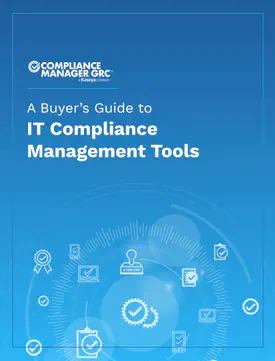As an MSP, do you work with clients who are HIPAA covered entities or their business associates? Are you doing all you can to protect them from committing the most common HIPAA violations?
We’ve compiled a list of compliance offenses that organizations most frequently commit. We will also share a solution that will help you guard your clients against many of these violations and keep them in compliance.
The 8 Most Common HIPAA Violations
- Allowing Unsanctioned Access to Records
This is one of the most prevalent HIPAA offenses committed by employees – peeking into records of family, friends, co-workers and celebrities. HIPAA privacy rules state that patient records may only be obtained and viewed for purposes of treatment, healthcare operations and payment. Any attempt to access patient data outside those purposes or by unauthorized personnel violates this mandate. 2. Improperly Disclosing Health InfoAny disclosure of data that is not sanctioned under HIPAA can draw a financial penalty. These violations can include disclosure following loss or theft of patient records, disclosing health information to a patient’s employer, or careless management of data. 3. Insufficient Electronic Personal Health Information (ePHI) Access ControlsHIPAA mandates organizations to restrict ePHI access to authorized personnel only. Failure to enforce these controls can lead to hefty fines. 4. Failing to Protect ePHI on Portable DevicesUnfortunately, lost or stolen devices are not uncommon. HIPAA requires covered entities to take measures to protect patient information on all portable devices containing ePHI. Encryption is one of the most effective means of doing this, though it is not mandatory under HIPAA. Breaches of encrypted data are not considered reportable incidents unless the decryption key is also stolen. However, if an organization chooses not to encrypt their data, they must employ an equally secure, alternate method. 5. Improper Disposal of ePHI
HIPAA requires covered entities to properly and permanently destroy patient records when retention periods have expired. Organizations must ensure deleted data does not remain in desktop recycle bins or in backup copies. 6. Exceeding the 60-Day Breach Notification DeadlineCovered entities must notify involved parties no later than 60 days after the discovery of a breach. Going beyond this timeframe continues to be one of the most common HIPAA transgressions. 7. Failing to Conduct Comprehensive Risk Analysis
This is one of the most common violations that incur financial penalties. Organizations often fail to perform an accurate and thorough risk analysis of their entire enterprise. Regular and complete risk analyses help maintain continuous compliance and detect vulnerabilities before they can become violations. 8. Neglecting to Manage Security Risks
Risk analyses are only the first step to mitigating threats. The vulnerabilities that the analysis uncovers must be remedied in a reasonable amount of time. Many covered entities and business associates find themselves in violation when they fail to address known security risks immediately.
Compliance Software for Violation Prevention
Increasing volumes of patient data make it a challenge for covered entities and business associates to maintain HIPAA compliance. Even well-organized, knowledgeable clients can struggle with the privacy and protection landscape that steadily grows more complicated as ePHIs and new WiFi-connected medical devices spring into the market.
MSPs can help clients reduce HIPAA violation risks and maintain audit health with compliance process automation. A comprehensive solution that includes security rule assessments, auditor checklist reports, and administrative alerts works to keep a client’s HIPAA requirements current and risk free.
HIPAA compliance is more critical and more complicated than ever. MSPs need a solution that goes beyond manual capabilities. Compliance process automation is the answer.
